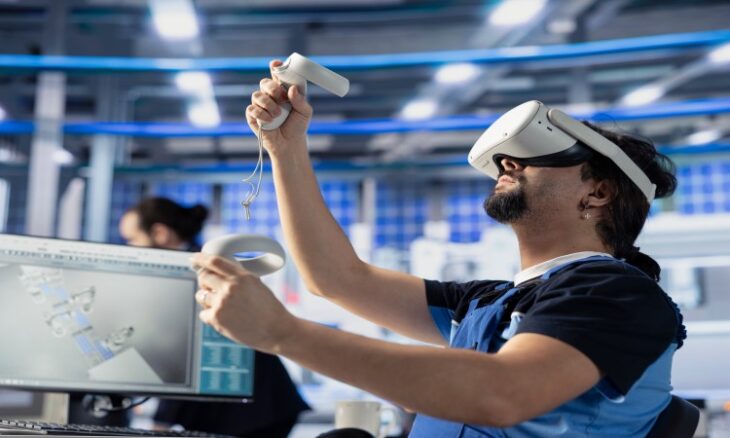TfW Introduces the UK’s First VR Training for Rail Staff
Transport for Wales has become the first train operator in the United Kingdom to launch virtual reality training for its staff, marking a significant shift in how new employees prepare for safety-critical roles. The newly introduced technology enables trainees to experience real-world scenarios directly from the classroom before they step into practical training.
The initiative centres on software that replicates the Class 197 train, which is widely used across Wales and the border routes. The system allows trainees to operate within a realistic digital environment where they can switch between keys, check route diagrams, and engage with simulated passengers by sounding a whistle. The programme has been designed to replicate the pressures and decision-making moments typically encountered on live services, ensuring trainees gain a deeper level of familiarity before entering real-life conditions.
The virtual reality system was developed by Denova, a technology company based in Scotland. The firm collaborated with Transport for Wales to create a bespoke training simulator tailored to the demands of the railway. The software offers staff complete immersion and flexibility, giving them the ability to test their skills across a range of operational and emergency scenarios. According to the developers, one of the system’s major advantages is its capacity to simulate situations rarely encountered on live services but vital for professional competence.
Transport for Wales considers the introduction of this training an investment in long-term staff development. By bridging the gap between classroom theory and practical training, the organisation believes the new approach will accelerate confidence and competence among new recruits. While it is not intended to replace in-person training, the system provides an additional step in ensuring staff are fully prepared for the demands of their roles.
The software builds upon methods already widely adopted in other sectors, including the military, NHS, emergency services, and educational institutions, where VR has been used to replicate high-pressure and unpredictable environments. Until now, however, no train operator in the UK had applied such technology to the training of its conductors and train managers.
Instructors at Transport for Wales have welcomed the development, noting the significant advantages the system could bring to future trainees. Experienced staff have pointed out that the simulator allows individuals to test circumstances they may never otherwise encounter during routine training, such as degraded service conditions or complex safety incidents. Trainers who have spent years preparing hundreds of conductors emphasised how valuable such technology would have been in earlier periods of their careers.
For Denova, the collaboration with Transport for Wales has been described as a pioneering step for the industry. The company highlighted that the dispatch simulator functions in a similar way to cab simulators used in driver training, allowing staff to practise emergency and degraded scenarios without real-world risks. By giving trainees exposure to rare but safety-critical situations, the system aims to build both technical competence and confidence in handling operational challenges.
The project has already attracted attention from other operators across the UK, signalling potential wider adoption of VR in rail training. Industry observers note that Transport for Wales has effectively set a benchmark for integrating advanced technology into staff development, aligning itself with global practices where VR is increasingly embedded into workplace preparation.
Through this initiative, Transport for Wales is seeking to modernise its approach to training, ensuring staff are equipped not only with technical knowledge but also with the practical decision-making skills required in unpredictable conditions. With interest from across the rail sector, the programme could represent the beginning of a broader transformation in how railway staff are trained across the country.










